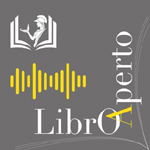About the Press
Cisalpine Studies is a new peer-reviewed studies series focused on the archeology and environmental history of northern Italy between the late Holocene and the end of the Roman period.
The aim is to publish in open access the results of excavations and research coordinated by leading research institutions working in the Cisalpine area, with a fresh approach and highlighting broader cultural connections with the Mediterranean and Europe.
The series welcomes multidisciplinary monographic volumes, in English, Italian, or French, covering themes and methods in the fields of archaeology, anthropology, ancient history, numismatics, archival studies, landscape and natural sciences.
Specific subseries are dedicated to field projects and key-site excavations funded and conducted by the University of Milan, such as the settlement of Forcello di Bagnolo S. Vito, and the Roman vicus of Calvatone-Bedriacum.
Cisalpine Studies also welcomes proceedings of international workshops and conferences, as well as reports and publications related to national and European funding programs.
Open Access Policy
The Series, in compliance with the principles of Open Science promoted by the Milan University, is an editorial tool for the implementation of freedom of access to scientific literature, and for the dissemination of research results.
The volumes are published in open access, to ensure the widest possible dissemination and circulation of knowledge scrutinized by the scientific community.
Volumes are published under the Creative Commons - Attribution-ShareAlike 4.0 International License
Indexing
The published volumes will be deposited in the National Libraries and in the DOAB (Directory of open access books).
Plagarism
The Editorial Committee and the Scientific Committee will act promptly in the event of scientific misconduct, ascertained, or presumed, both in relation to the published works and those yet to be published. As regards the published texts, in the event of errors, they will proceed to promptly report any corrections, in the event of fraudulent publication or proven plagiarism, they will proceed with the retraction of the texts The Editorial Committee, during the review process, will be able to make use of anti-plagiarism software.





